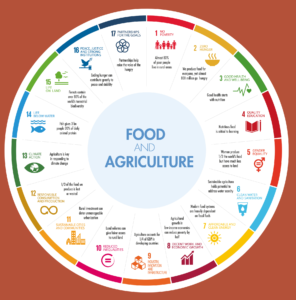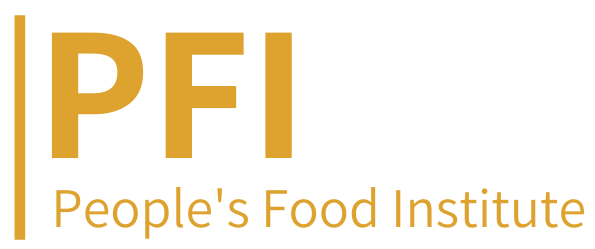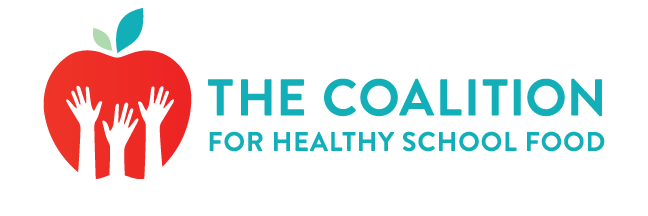Which SDGs are directly relevant to our backgrounders?
Addressing the root causes of food insecurity
- SDG 2 – Zero Hunger: End hunger, achieve food security and improved nutrition and promote sustainable agriculture.
- SDG 3 – Good health and well-being: Ensure healthy lives and promote well-being for all ages.
Building Resilient Food Systems
- SDG 12 – Responsible Consumption and Production: Ensure Sustainable Consumption and Production Patterns.
- SDG 13 – Climate Action: Take urgent action to combat climate change and its impacts.
- SDG 14 – Life Below Water: Conserve and sustainable use the oceans, seas and marine resources for sustainable development.
- SDG 15 – Life on Land: Protect, restore and promote sustainable use of terrestrial ecosystems, sustainably managed forests, combat desertification, and halt and reserve land degradation and halt biodiversity loss.
Ensuring everyone is at the table
- SDG 16 – Peace, Justice and Strong Institutions: Promote peaceful and inclusive societies for sustainable development, provide access to justice for all and build effective accountable and inclusive institutions at all levels.
Supporting Indigenous Food Sovereignty
While food was often used as a tool of colonization, it has the potential to be a tool for healing and asserting Indigenous food sovereignty. As we work towards the SDGs, we must aim for not only food security, but food sovereignty of Indigenous communities, which is inseparable from access to land and water. There is no explicit goal as part of the SDGs that relates to indigenous food sovereignty, but the SDGs can only be met if the rights of Indigenous peoples to respond to their own needs for adequate amounts of healthy, culturally appropriate foods in the forests, fields and waterways, are fully addressed.
The United Nations Declaration on the Rights of Indigenous Peoples (UNDRIP), which the Government of Canada finally adopted in June 2021, is directly relevant. UNDRIP articles 20, 24, 25, 26, 29 are directly related to food sovereignty. These articles along with all other UNDRIP articles “constitute the minimum standards for the survival, dignity and well-being of the indigenous peoples of the world.”
Championing decent work and justice for workers all along the food chain
- SDG 8 – Decent Work and Economic Growth: Promote sustained, inclusive and sustainable economic growth, full and productive employment and decent work for all.
- SDG 10 – Reduced Inequalities: Reduce Inequalities within and among countries.
Advancing a School Food Program for Canada
Food Secure Canada has just published a research paper on School Food and the SDGS. The paper highlights how school food can help Canada meet its multiple goals and targets, including:.
- SDG 1 – No Poverty: End poverty in all its forms everywhere.
- SDG 2 – Zero Hunger: End hunger, achieve food security and improved nutrition and promote sustainable agriculture.
- SDG 3 – Good health and well-being: Ensure healthy lives and promote well-being for all ages.
- SDG 4 – Quality Education: Ensure inclusive and equitable quality education and promote lifelong opportunities for all.
- SDG 5 – Gender Equality: Achieve gender equality and empower all women and girls.
- SDG 8 – Decent Work and Economic Growth: Promote sustained, inclusive and sustainable economic growth, full and productive employment and decent work for all.
- SDG 10 – Reduced Inequalities: Reduce inequalities within and among countries.
- SDG 12 – Responsible Consumption and Production: Ensure sustainable consumption and production patterns.






